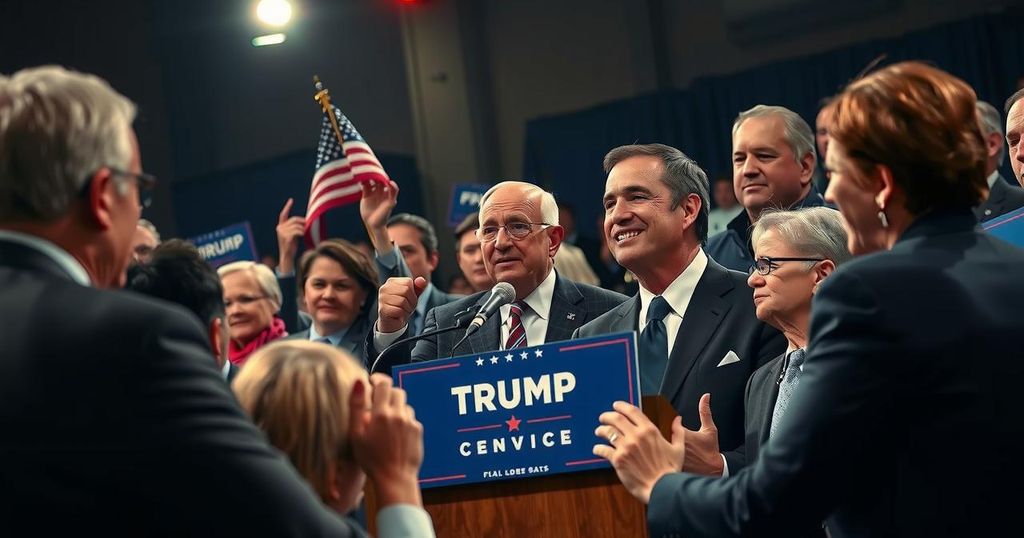Understanding the Reasons Behind Kamala Harris’s Electoral Defeat

Oliver Hall recounts his experiences volunteering for Kamala Harris’s campaign, illustrating the challenges she faced from economic concerns to gender biases. Voters often felt a stronger connection to Donald Trump’s narrative despite Harris’s policy successes, revealing complexities in the electoral response. Ultimately, Trump’s dominant influence thwarted Harris’s chances.
The recent electoral defeat of Kamala Harris has elicited a myriad of responses from supporters and volunteers alike, particularly from those who dedicated countless hours to campaigning. Through numerous calls made to potential voters, it became evident that economic concerns overshadowed Harris’s merits. Although the Biden administration recorded improvements in wages and unemployment rates, voters remained fixated on inflation and personal financial struggles, often gravitating towards the narrative espoused by the Trump campaign. Moreover, perceptions of Harris as a candidate were complex and contradictory. While some voters admired her potential, others labeled her in stark terms, citing accusations of being a “communist” or overly tough on crime. Particularly in the Latino community, perceptions framed Harris as both too lenient and excessively stringent, showcasing the effectiveness of the Trump campaign’s messaging. Despite efforts to clarify her platform, initial encounters with voters revealed a significant lack of awareness regarding Harris’s policies and goals. Gender biases also played a decisive role, with many individuals indicating that they felt the nation was not yet prepared for a female president. Conversations often devolved from policy discussions into critiques of her capability based on her gender. Intriguingly, key progressive issues appeared to resonate minimally with the electorate during these exchanges. The lack of mention of topics such as tax reforms or international human rights underlined a disconnect between Harris’s platform and voters’ immediate concerns. Ultimately, it appears that the major influence of Trump loomed large over the electoral landscape, as his presence commanded listeners’ attention irrespective of previous controversies or political missteps. Thus, the electoral results can be understood through the lens of a powerful narrative shaped by Trump’s influence rather than a failure of Harris’s campaign strategy or messaging. This phenomenon merits further examination and understanding well beyond this electoral cycle.
The recent elections in the United States highlighted significant challenges faced by Kamala Harris’s campaign against Donald Trump. The article delves into the encounters of a volunteer who engaged in telephone outreach efforts to sway voters toward Harris, revealing the complexities of voter perception, economic anxieties, and the influence of gender biases. This backdrop provides context for understanding the immediate concerns of the American electorate and the prevailing narratives that shaped their voting decisions.
The electoral defeat of Kamala Harris reveals critical insights into the electorate’s mindset. Economic concerns, strongly influenced by inflation, overshadowed the administration’s successes. Harris faced a litany of contradictory perceptions, from her effectiveness to entrenched gender biases that hindered her acceptance. Ultimately, the dominating appeal of Donald Trump played a decisive role, as voters appeared attracted to his narrative, demonstrating the need for future campaigns to consider these dynamics thoroughly.
Original Source: www.theguardian.com







